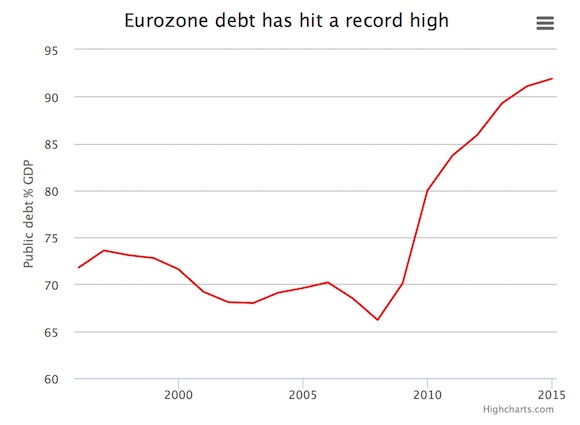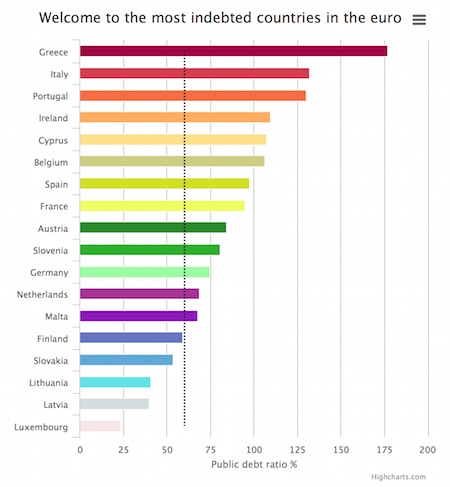
Paul Gauguin Apatarao 1893

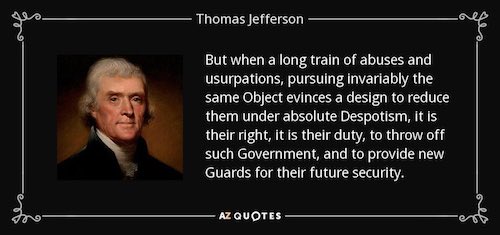

Mind control
Yikes pic.twitter.com/qvuqX123Gt
— Elon Musk (@elonmusk) May 28, 2023

Very remarkable
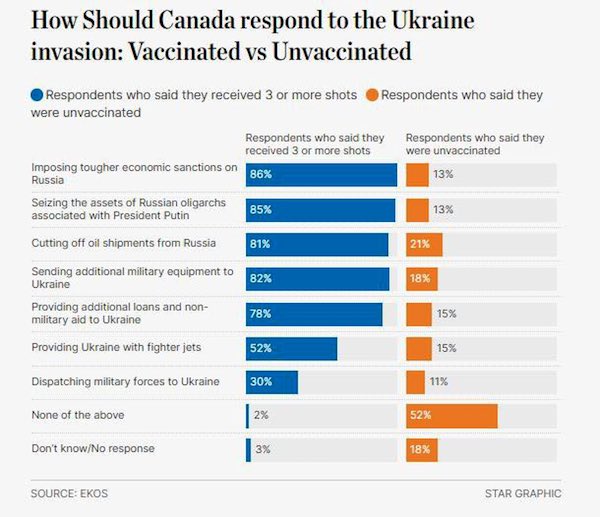

Hunter
Hunter Biden is called out by Russian news media for filming himself in dozens of sex tapes with under age girls while measuring and using crack cocaine. pic.twitter.com/E7ggtvVB2E
— Robert Sepehr (@robertsepehr) May 28, 2023

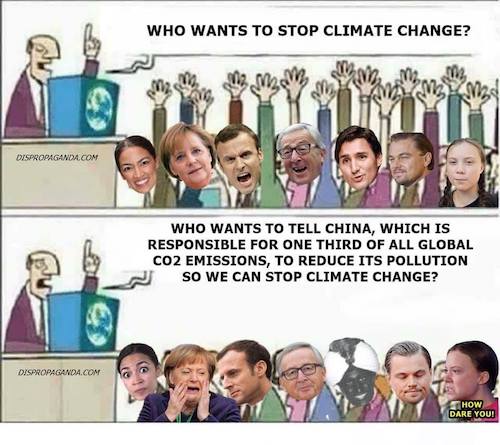



Two different voices on the same topic, the Ambassador to Great Britain and the Deputy Foreign Minister.
“He dismissed thinking that Ukraine may prevail as “a big idealistic mistake.”
• Russia Ready For Ukraine Peace Talks, But On Its Conditions – Envoy (Tass)
Russia is ready for peace talks with Ukraine but it will not give up its conditions, Russian Ambassador to Great Britain Andrey Kelin said in an interview with the BBC on Sunday.”We want peace, but on certain conditions, of course. For us, two things are important. That there will be no threat from Ukraine to Russia – this is one thing. And second, that Russians in Ukraine will be treated like all other nations in the world. Like French people are being treated in Belgium, or like Italians and Germans are being treated in Switzerland, not differently. <…> That’s a grave violation of the Human Rights Declaration and of all documentation,” Kelin said, as he described the developments in Ukraine in recent years as “extreme nationalism.”
According to Kelin, Russia’s current military purpose is to liberate the Donbass from the occupation. He dismissed thinking that Ukraine may prevail as “a big idealistic mistake.” “We can make peace tomorrow, if the Ukrainian side is prepared to negotiate, but at the moment there are no preconditions for that, I am afraid, because the president of Ukraine has prohibited any negotiations,” the Russian diplomat maintained, adding that he didn’t believe that simply freezing the conflict was a good idea. “It will not make a platform for a stable and long-term peace in Europe,” Kelin explained. The envoy reiterated the Russian nuclear doctrine does not envisage using nukes in the conflict in Ukraine. However, Kelin said that he was worried about a continued escalation of the conflict as he referred to weapons supplies to Kiev currently being ramped up.
Maersheimer
"The tragic truth is: if the West had not pursued NATO expansion into Ukraine, it is unlikely there would be a war in Ukraine today."
—Professor John Mearsheimer pic.twitter.com/SDoh1ooA5s
— sarah (@sahouraxo) May 27, 2023

“Ukraine “must return to a neutral non-aligned status” and “refuse to join NATO and the EU..”
• Russia Outlines Conditions For Ukraine Peace Deal (RT)
The Ukraine conflict could be settled if Kiev were to re-commit to its neutral status, recognize “new territorial realities,” and declare Russian as a state language, Russian Deputy Foreign Minister Mikhail Galuzin said in an interview released on Saturday. Speaking to TASS news agency, the diplomat said Moscow “is convinced that a peace settlement will be possible only if the Ukrainian armed forces cease hostilities, and Western weapons shipments are stopped.” He also stressed that to achieve a durable peace, Ukraine “must return to a neutral non-aligned status” and “refuse to join NATO and the EU,” adding that Kiev should recognize the “new territorial realities” that emerged after people exercised their right to self-determination.
The diplomat was referring to four former Ukrainian regions that overwhelmingly voted to join Russia in public referendums last autumn, as well as Crimea. Galuzin noted that another crucial element of any peace settlement is Kiev’s commitment to respect the rights of the country’s Russian-speaking population and other minorities. “Russian should be designated as a state language at the legislative level. It is necessary to ensure that basic human rights, including freedom of faith, are observed in Ukraine,” he stressed.
On Saturday, Mikhail Podoliak, an aide to Ukrainian President Vladimir Zelensky, dismissed Moscow’s conditions, issuing Kiev’s own list of demands. Those include the immediate withdrawal of all Russian troops from territory Kiev claims as its own, the “extradition of war criminals,” the creation of a “buffer zone” on Russian territory, as well as “voluntary renunciation of Russian assets seized in other countries in favor of Ukraine”. Earlier this week, Kremlin Press Secretary Dmitry Peskov said that while Moscow does not want the Ukraine conflict to be frozen, there are no prerequisites for a peace settlement yet, pointing out that Kiev has prohibited any talks with the current Russian leadership.


“I hope reasonable people will step away from unconditional support for the neo-Nazi regime that the West itself created..”
• Lavrov: West’s Plans To Send F-16s To Kiev Unacceptable Escalation (TASS)
Russian Foreign Minister Sergey Lavrov slammed plans by Western countries to send F-16 fighter jets to Ukraine as an unacceptable escalation. “Certainly, this is an unacceptable escalation. I hope there are sensible people in the West who understand that,” Lavrov told the “Moscow. Kremlin. Putin” TV show, an excerpt of which was posted by reporter Pavel Zarubin on Telegram on Sunday. According to Lavrov, “Western political analysts have been discussing how to decolonize Russia.” “They mean dividing our country. I hope sensible people will abandon their reckless support for the neo-Nazi regime which was created by the West itself,” Russia’s top diplomat added. On May 21, US President Joe Biden said at a news conference following the G7 summit in Hiroshima that the West will start training Ukrainian pilots on F-16s and other fourth-generation Western combat aircraft.

“..be tough but open to what could help us clearly communicate our concerns..”
• West Waging Its War Against Russia ‘On All Fronts’ – Kremlin (TASS)
Western countries are waging their war against Russia in all domains, Kremlin Spokesman Dmitry Peskov said in an interview with the “Moscow. Kremlin. Putin” TV show on Sunday. “War is being waged in a broader sense. A war is being waged against us on all fronts, be it the economy, international relations, or in terms of ownership,” he explained. Peskov urged Russia not to succumb to emotions and keep a sober mind in these circumstances. “We should remain focused and strong, and do <…> what best suits our interests, be tough but open to what could help us clearly communicate our concerns, and what we find unacceptable for ourselves, what will be fighting against,” he maintained.

“..it is Poland and the Baltic States – Latvia, Lithuania, and Estonia – that are “executing on the ground the aim set by the US to weaken Russia, deliver it a strategic defeat.”
• Moscow Warns West Against ‘Playing With Fire’ (RT)
The US and its allies are “playing with fire” by doubling down on their support for Kiev amid the conflict with Moscow, including by planning to provide Ukraine with F-16 fighter jets, Russian Foreign Minister Sergey Lavrov has said. “Of course, it’s an unacceptable escalation” Lavrov said regarding potential deliveries of American-made warplanes to Kiev in an interview with Russia 1 TV on Sunday. “I think there are reasonable people in the West who understand this. But everything is being dictated by Washington, London, and their satellites inside the EU.” According to the minister, it is Poland and the Baltic States – Latvia, Lithuania, and Estonia – that are “executing on the ground the aim set by the US to weaken Russia, deliver it a strategic defeat.”
Some in the West “are already discussing ‘decolonization’ of Russia, meaning the dismembering of our country,” Lavrov said, warning that “this is playing with fire. There can be no doubts about that.” “I hope reasonable people will step away from unconditional support for the neo-Nazi regime that the West itself created,” he added. The foreign minister suggested that the words of the chairman of the US Joint Chiefs of Staff, General Mark Milley, who acknowledged earlier this week that “in the near term,” Ukraine will not be able to recapture the territories it lost to Russia, were a “step forward to understanding the reality on the ground.” Ukrainian President Vladimir Zelensky has been pressing his Western backers for F-16 warplanes for months, arguing they are crucial for defending Ukrainian airspace amid Russia’s missile campaign targeting military facilities and energy infrastructure.
At the G20 summit last week, US President Biden Joe Biden said that Washington would support efforts by the UK, the Netherlands, and other European countries to train Ukrainian pilots to fly the F-16. White House National Security Advisor Jake Sullivan stated at the event that the US “will work with our allies to determine when planes will be delivered, who will be delivering them, and how many.” Several outlets reported that the jets will not be provided by the US, but that the Biden administration would instead allow its allies to transfer their F-16s to Kiev. Moscow has repeatedly warned that deliveries of more sophisticated weapons to Ukraine by the US and its allies could cross its ‘red lines’, leading to a major spike in the hostilities. Russia has said that the provision of arms, intelligence sharing, and training to Kiev’s troops makes Western nations de facto parties to the conflict.

They will get maybe 50. Russia has 1,000 better jets.
• F-16s For Ukraine Won’t Be A Game Changer – Bloomberg (RT)
While potential Western deliveries of US-designed F-16 fighter jets to Ukraine will help enhance Kiev’s combat capabilities, they won’t be a “game changer” in its conflict with Russia, Bloomberg reported on Sunday, citing several pilots who had flown the aircraft. According to the agency, the F-16s that could be sent to Ukraine “will still have inferior radar and shorter range missiles” than many of Russia’s modern aircraft and air defense systems. This means that those planes will either be deployed defensively, or used as part of high-risk operations, the report says. Brynn Tannehill, who designed simulators for the planes, told the outlet that for Ukrainian pilots switching from Soviet-era aircraft over to F-16s would be as if “they pushed the easy button.” However, “you can’t overcome the laws of physics,” she added.
According to John Venable, a former F-16 pilot with the US Air Force, should Ukrainians fly close to the front line, they would receive a signal that they had been detected by Russian radars long before they would be in position to fire on their targets. He added that Ukrainian pilots may use hilly terrain to sidestep detection – and thus destruction – while approaching their targets, but they would have to quickly climb at a steep angle, shoot, and then duck for cover again. However, such tactics mean that the F-16s “aren’t going to be hitting anything,” Venable said. Moreover, according to Dan Hampton, another veteran combat pilot, it would also be impractical to use F-16s to shoot down Russian cruise missiles, as there would only be a small window after the projectile is fired and detected but before it reaches its target.
Deployment of F-16s in this capacity would require them to stay in the air for hours while waiting for the right moment, he explained. The pilots’ assessment echoes a statement by US Air Force chief Frank Kendall, who said earlier this month that F-16 deliveries would not mark a turning point in the Ukraine conflict, given that air power has not played a crucial role in the hostilities. However, Yury Ignat, the spokesman for the Ukrainian Air Force Command, has insisted that Kiev “will win this war” if it were to receive modern Western jets. Commenting on potential F-16s deliveries to Ukraine, Russian Foreign Minister Sergey Lavrov warned that such a move would lead to “an unacceptable escalation” of the conflict.

The value of a US passport.
• State Department Won’t Say If It’s Working to Free Gonzalo Lira (Antiwar)
The State Department has refused to say if it’s engaging with the Ukrainian government over American citizen Gonzalo Lira, who was detained by the Security Service of Ukraine (SBU) due to his political views on the conflict with Russia.Lira has a popular YouTube channel and a large following on Twitter and Telegram. He is also a writer who has contributed to several media outlets, including Business Insider. Lira was born in California and is a dual citizen of the US and Chile and had been living in Kharkiv, Ukraine, throughout the war.Lira is a critic of the Ukrainian government and was arrested by the SBU on charges of justifying the Russian invasion. “After the start of the full-scale invasion, the blogger was one of the first to support the Russian invaders and glorify their war crimes,” the SBU said in a press release referring to Lira.
The SBU also accused Lira of “discrediting the top military and political leadership and the Defense Forces of our state.” He was charged under sections 2 and 3 of Article 436-2 of Ukraine’s criminal code, which outlaws the “distribution of materials” that justify Russia’s actions going back to 2014. Epoch Times reporter Liam Cosgrove asked State Department spokesman Matthew Miller if the administration was aware of Lira’s detainment and how the US feels about Ukraine arresting an American for speech.“So I will say in general that we’re aware of the report. We obviously support the exercise of freedom of speech anywhere in the world, and I’ll leave it at that,” Miller said.When asked if the administration was working to secure Lira’s release, Miller said, “I’m going to leave my comments where I just left them.”
Cosgrove also asked Reps. Ted Lieu (D-CA) and Marjorie Taylor Greene (R-GA) about Lira’s detainment. Lieu said that he wasn’t aware of the case but said US citizens should “have the ability to express their thoughts and views” and that he would look into the arrest. Responding to the news, Greene told Cosgrove: “America is providing weapons, equipment for the defense of their country, but the Ukrainian government is not going to defend any American’s freedom of speech, and that’s a real problem.” Lira’s arrest received virtually no attention in Western media. One of the few outlets to cover it was the Daily Beast, which smeared the American instead of questioning the charges. According to the Beast, Lira is facing five to eight years in prison.

“..it plans to knock on the door of every possible DeSantis voter at least four times in New Hampshire, Nevada and South Carolina — and five times in the kickoff Iowa caucuses..”
• DeSantis Superpac Plans To Spend $200 Million In 4 States (CTH)
2,600 people at $15/hr is $39,000 per hour. Anticipating 1,000 hrs per campaign worker, that’s $39 million. At $25/hr that’s $65 million. At $40/hr that’s $104 million. This is the scale of spending that Ken Cuccinelli and Jeff Roe have for the Never Back Down SuperPAC to support Governor Ron DeSantis in Iowa, New Hampshire, South Carolina and Nevada on behalf of the Sea Island billionaires who want to manipulate the 2024 election. That’s just payroll for new hires. Overall, the New York Times is reporting a campaign support spending plan of more than $200 million. Essentially, these are payments from the billionaire Wall Street donors and multinationals, funneled through the SuperPAC, to influence the ’24 election. The context of the New York Times report sounds accurate.
NYT – “A key political group supporting Ron DeSantis’s presidential run is preparing a $100 million voter-outreach push so big it plans to knock on the door of every possible DeSantis voter at least four times in New Hampshire, Nevada and South Carolina — and five times in the kickoff Iowa caucuses. The effort is part of an on-the-ground organizing operation that intends to hire more than 2,600 field organizers by Labor Day, an extraordinary number of people for even the best-funded campaigns. Top officials with the pro-DeSantis group, a super PAC called Never Back Down, provided their most detailed account yet of their battle plan to aid Mr. DeSantis, whom they believe they can sell as the only candidate to take on — and win — the cultural fights that are definitional for the Republican Party in 2024.
The group said it expected to have an overall budget of at least $200 million, including more than $80 million to be transferred from an old DeSantis state political account, for the daunting task of vaulting the Florida governor past former President Donald J. Trump, who has established himself as the dominant early front-runner. […] “No one has ever contemplated the scale of this organization or operation, let alone done it,” said Chris Jankowski, the group’s chief executive. “This has just never even been dreamed up.” […] At the helm of the DeSantis super PAC is Jeff Roe, a veteran Republican strategist who was Mr. Cruz’s campaign manager in 2016. In an interview, Mr. Roe described an ambitious political apparatus whose 2,600 field organizers by the fall would be roughly double the peak of Senator Bernie Sanders’s entire 2020 primary campaign staff.

“I think it was basically just a middle finger to the American public that this is what they think of you.”
• DeSantis Says He Would Sign Legislation to Defund ‘Corrupt’ IRS (ET)
Florida Gov. Ron DeSantis called IRS a “corrupt organization” and said he would welcome a bill abolishing the agency if elected president in 2024. DeSantis made the comments during an interview with conservative radio host Dana Loesch on May 25, a day after the governor announced his White House bid on Twitter. “If Congress defunded the IRS and sent such a bill like that to your desk, number one, would you sign it?” Loesch asked. “And then what would you replace the system with? Are you for like a fair tax? A flat tax? Where do you stand on that?” “So, the answer’s yes,” DeSantis said in response. “I think the IRS is a corrupt organization and I think it’s not a friend to the average citizen or taxpayer. And so we need something totally different.”
“I’ve supported all of the single rate proposals, I think they would be a huge improvement over the current system,” the governor added. “And I would be welcoming to take this tax system, chunk it out the window, and do something that’s more favorable to the average folks.” The governor has long spoken favorably of a flat tax system. In a Q&A published by Palm Coast Observer in 2012, months before DeSantis won his first term as a House lawmaker from Florida, DeSantis said he believed the federal tax code should be overhauled. “I think the federal tax code is an affront to a free society in the sense that it’s 70,000 pages,” DeSantis stated. “I am in favor of a complete overhaul; my principle is that consumed income should be taxed one time at a low, single, flat rate.He added, “Now whether that’s at the point of after savings and investment income on a flat tax, or on the point of consumption which people talked about a fair tax, I think you need to repeal the 16th Amendment for that because I don’t think you want a sales and an income tax.”
Last year, DeSantis criticized the Biden administration’s nearly $80 billion in funding for the IRS, which Republicans argue would pave the way for the hiring of 87,000 tax agents, as giving a “middle finger to the American public.” The funding to the IRS was part of the Inflation Reduction Act that President Joe Biden signed into law in August 2022. “I think of all the things that have come out of Washington that have been outrageous, this has got to be pretty close to the top,” DeSantis said at the time. “I think it was basically just a middle finger to the American public that this is what they think of you.” He continued, “All these problems we have to deal with, and they think the way is to do 87,000 IRS agents. There’s going to be more people in the IRS than in a lot of these other agencies combined now.”

“Kremlin spokesman Dmitry Peskov said, “It is difficult to imagine a greater shame for a country than having such senators.”
Russia put Graham on a wanted list this morning.
• Russia Condemns Sen. Lindsey Graham’s Comments on Dead Russians (Antiwar)
Russian officials have condemned Sen. Lindsey Graham (R-SC) for calling the US funding of Ukraine the “best money we’ve ever spent” after noting Russians are dying in the conflict. Graham made the comments during a meeting with Ukrainian President Volodymyr Zelensky in Kyiv on Friday. A video released by the head of Ukraine’s presidential office showed Graham say the “Russians are dying” and then cut to a different angle where the senator said it’s the “best money we’ve ever spent.” It’s not clear from the video if Graham said anything between the two quotes, but the senator has made extremely provocative statements throughout the war. He has called for the assassination of Russian President Vladimir Putin and has said the US should start shooting down Russian planes, an action that could spark World War III.
Responding to Graham’s comments, Kremlin spokesman Dmitry Peskov said, “It is difficult to imagine a greater shame for a country than having such senators.” Dmitry Medvedev, the deputy head of Russia’s Security Council and former president, called Graham an “old fool.” Graham was asked by Reuters to reply to Medvedev’s comments. “Mr. Medvedev, if you want Russians to stop dying in Ukraine, withdraw. Stop the invasion. Stop the war crimes. The truth is that you and Putin could care less about Russian soldiers,” he said. Graham also appeared on Fox News on Sunday and called for the US to send Ukraine whatever it wants, including longer-range weapons and widely-banned cluster munitions.
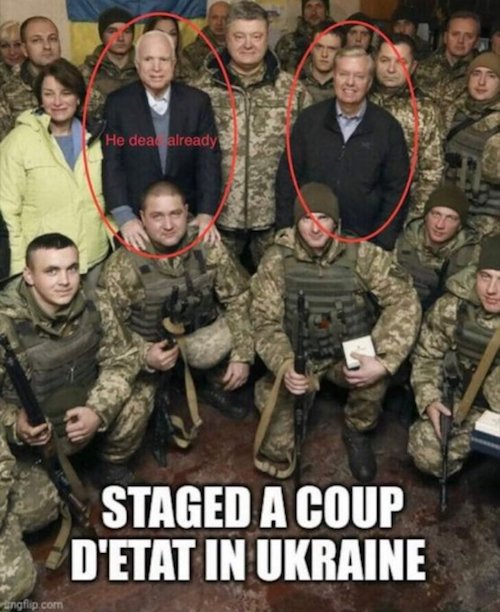

What a joke.
• Europe’s Largest Air Force Drills Start In Finland, Norway, Sweden (Az.)
Finland, Norway, and Partner Sweden will host the multinational Arctic Challenge Exercise 2023 from May 29 to June 9, 2023, Report informs referring to the NATO website. This year’s Arctic Challenge Exercise (ACE 23) is the sixth of its kind which Finland, Norway, and Sweden have hosted together. The Finnish Air Force is responsible for planning and directing the training event that is conducted every second year since 2013. About 3,000 military and 150 aircraft from the armed forces of 14 countries will take part in the exercises. The Arctic Challenge Exercises is part of the NORDEFCO cooperation between Finland, Norway, Sweden, and Denmark. Their Air Forces regularly carry out combined air combat-related Cross Border Training operated from their home bases.

Useful for NATO: a powder keg.
• Kosovo PM Dreams Of Becoming New Zelensky – Serbian President (RT)
Tensions in Serbia’s breakaway province of Kosovo may spiral out of control because of the actions of its prime minister, Albin Kurti, warned Serbian President Aleksandar Vucic in an interview released on Sunday amid violent clashes between local police and Serb protesters. Speaking to the Serbian TV channel Pink, Vucic said that “the most difficult situation in Kosovo and Metohija is yet to follow. Something we have not seen until now, all thanks to the provocative actions and terribly irresponsible behavior of Albin Kurti.” The Serbian leader went on to say that he was “afraid of general insecurity, instability” and of “big conflicts” in the breakaway province. “I know that this other one [Kurti], who caused everything, doesn’t want to retire for a living, because he longs and dreams of being a [Ukrainian President Vladimir] Zelensky,” he added.
Vucic noted that he had been contacted by several European envoys who voiced concern over the ongoing situation in Kosovo, which has been marked by violent clashes between local police and ethnic Serbs, who make up the majority in the northern part of the region. Law enforcement officers fired tear gas in one of the municipalities to disperse protesters who had tried to prevent a newly elected ethnic Albanian mayor from entering his office, resulting in several people being injured. The unrest came after local Serbs mostly boycotted elections in four northern municipalities, which saw a total turnout of just 3.47%, arguing that they would not work with new mayors from ethnic Albanian parties who do not represent their interests.
Amid the clashes, Serbia placed its army on high alert, moving some units closer to the region’s border. Defense Minister Milos Vucevic said that “it is clear that terror against the Serb community in Kosovo is happening.”Meanwhile, a number of Western countries, including the US, France, Italy, Germany, and Britain, issued an unexpectedly harsh public rebuke of Kosovo, condemning the use of force and calling on the local authorities “to immediately step back and de-escalate.” Kosovo unilaterally declared independence in 2008 with the support of the US and many of its allies. The breakaway region is not recognized by several countries, including Russia, China, and Serbia itself.

Trying to drive a wedge in between new found friends?
• Saudi Arabia Calls Russia Out Over Oil Output – WSJ (RT)
Saudi Arabia has accused Russia of not entirely fulfilling its pledge to curb oil production in response to Western sanctions, the Wall Street Journal reported on Saturday, citing people familiar with the matter. Riyadh has reportedly complained to senior Russian officials about the matter and asked Moscow to honor the output cuts of 500,000 barrels per day (bpd) that the two biggest oil producers in the OPEC+ group agreed in April to make.The curbs, which took effect in May and are set to last until the end of 2023, were aimed at supporting global oil prices. The total volume of oil taken off the market was expected to be 1.66 million barrels per day. The decision came as an additional step following the OPEC+ agreement to collectively reduce oil output by 2 million bpd that came into effect in November 2022.
In February, Russian Deputy Prime Minister Aleksandr Novak said that Russia would voluntarily reduce oil production in March by 500,000 barrels per day as the nation halted sales to buyers that complied with a Western-imposed price cap. The measure was then extended until June, and later until the end of the current year. Since then, the official has reportedly said that Moscow is abiding by its voluntary pledge to cut oil output by 500,000 barrels a day from March until the end of 2023. “Taking into account the unfounded speculation in the press regarding oil production levels, Russia reaffirms its full commitment to and implementation of voluntary oil production cut levels,” Novak said in a statement earlier this month.
Meanwhile, the International Energy Agency had previously reported that Russian oil exports reached a 14-month high in April, with the lion’s share going to Asian markets amid Western sanctions. The report also suggested that Russia hadn’t fully implemented the planned production cuts. The agency estimates that the country’s oil trade revenues amounted to $15 billion in April, an increase of $1.7 billion on the month.

Civil servants with small minds.
• EU Commissioner Reprimands Elon Musk Over Disinfo (RT)
European Commissioner Thierry Breton threatened Twitter CEO Elon Musk with “enforcement” in a tweet on Friday after Musk announced he was pulling Twitter out of the EU’s voluntary Code of Practice on Disinformation, warning he was not getting away so easily. Confirming Twitter had left the anti-disinformation body, Breton tweeted, “You can run but you can’t hide,” promising “our teams will be ready for enforcement.” “Beyond voluntary commitments, fighting disinformation will be legal obligation under [the Digital Service Act] as of August 25,” the official reminded Musk, referring to incoming legislation that will require Twitter and seven other social media platforms to “fight disinformation” in the EU or face massive fines as high as 6% of the company’s annual revenue.
Twitter joined the CPD in 2018 under former CEO Jack Dorsey. The DSA incorporates the (voluntary) Code of Practice into a mandatory code of conduct for very large online platforms, arguing they must take responsibility for keeping the internet safe for democracy or face ruinous financial consequences. Twitter has three months to comply with its obligations. While Musk and Breton reportedly saw eye-to-eye regarding Twitter’s implementation of the DSA ahead of the billionaire’s purchase of the platform last year, Breton warned the Tesla tycoon that Twitter faced “huge work ahead” to comply with EU regulations after the deal was completed in November, demanding he significantly beef up content moderation and “tackle disinformation with resolve.”
As of February, Twitter was still falling short of Breton’s expectations, reportedly receiving a warning from EU officials following a poor performance evaluation on the CPD accompanied by complaints that the platform “didn’t take it seriously enough.” Musk has struggled to convince Twitter users of the sincerity of his free speech absolutism since hiring NBCUniversal ad maven and World Economic Forum member Linda Yaccarino as the platform’s new CEO earlier this month. This comes despite his taking a gratuitous swipe at liberal bogeyman and fellow billionaire George Soros and hosting Republican presidential candidate and anti-woke crusader Ron DeSantis’ announcement of entry into the 2024 race. Twitter has complied with 80% of all government takedown requests in the first six months since Musk took over as CEO, a significant increase from the 50% rate that characterized the pre-Musk era.

“He couldn’t be counted on not to carry out a threat to do something crazy, mutually destructive..”
• Kissinger vs. ‘The Most Dangerous Man in America’ (Gosztola)
In 1970, before whistleblower Daniel Ellsberg shared copies of the Pentagon Papers with several newspapers in the United States, Ellsberg was invited by his friend Lloyd Shearer, who was the editor of Parade magazine, to attend a lunch with President Richard Nixon’s national security adviser Henry Kissinger. Ellsberg recounted the lunch in his book, Secrets: A Memoir of Vietnam and the Pentagon Papers. Kissinger knew Ellsberg from his work at the RAND Corporation, and what Ellsberg recounted is vital to understanding the festering and unrepentant diplomat as the world marks his 100th birthday. The contrast between the two could not be more stark. Ellsberg has spent the past 50-plus years constantly atoning for the part he played in the Vietnam War while Kissinger has shirked accountability for the vast amount of bloodshed that he enabled.
Kissinger’s reaction to Ellsberg and the Pentagon Papers exposed more about who he was deep down than his philosophy or any advice he ever offered on U.S. foreign policy. On a small patio, Kissinger was seated with General Alexander Haig, his aide. Kissinger said hello to Ellsberg and Shearer, and he told Shearer, “You know, I have learned more from Dan Ellsberg than from any other person—” Ellsberg believed Kissinger would say “Vietnam,” but Kissinger said “—about bargaining.” That did not make a whole lot of sense to Ellsberg until he remembered the talks that he gave to Kissinger’s seminar at Harvard in 1959. They were part of a lecture series called “The Art of Coercion.” Since that was eleven years ago, Ellsberg responded, “You have a very good memory.”
With a “guttural drawl,” Kissinger added, “They were very good lectures.” “Nice. Except that when I thought about it later, it made the hair on the back of my neck stand up,” Ellsberg shared. “The lectures I had given to his class had had to do with Hitler’s blackmail of Austria and Czechoslovakia in the late thirties that had allowed him to take over those countries just by threatening their destruction.” “One of the talks was titled, “The Theory and Practice of Blackmail,” and the other was “The Political Use of Madness.” Hitler had deliberately cultivated among his adversaries the impression of his own irrational unpredictability.”
Ellsberg continued, “He couldn’t be counted on not to carry out a threat to do something crazy, mutually destructive. It worked for him, up to a point, because he was crazy, madly aggressive, and reckless. But after a certain point it brought the world down around him.” “It wasn’t a tactic I was recommending for the United States, or anyone else, for that matter. Far from it. For someone to imitate Hitler in this respect was to cultivate madness and court disaster,” Ellsberg contended.




Octopus hiding
When marine biologist Roger Hanlon caught this creature on camera, he said he screamed bloody murder. And no wonder. A superb visualization of how chromatophores allow an octopus to blend in with the backdrops
[source, read more: https://t.co/Vp1Uxhq0He]pic.twitter.com/1bp6cWouSN
— Massimo (@Rainmaker1973) May 28, 2023

Drawing
very realistic drawing enough to change the course of real life pic.twitter.com/JrTfQmarVm
— Enezator (@Enezator) May 28, 2023

Peacocks
https://twitter.com/i/status/1662823884209397760

Trap
https://twitter.com/i/status/1662828333715931136


In 1958, in Palisades, New Jersey, a performer named Jimmy Armstrong, known as The Dwarf Clown, entertained the audience at Clyde Beatty Circus. This moment was captured by photographer Bruce Davidson as part of his renowned ‘Circus’ series. “He was standing alone outside the tent, smoking a cigarette,” Davidson said upon seeing Armstrong for the first time. Dressed in a tuxedo and a top hat, he held a small bouquet of paper flowers and stood there pensively, immersed in the privacy of his inner thoughts.”
“He seemed to know that it was the inner moment I was drawn to and not his clown face or physical appearance. We became friends, although we seldom spoke to one another.” “I found something in Jimmy that was more than loneliness, it was a story about surviving” – Bruce Davidson.


Support the Automatic Earth in virustime with Paypal, Bitcoin and Patreon.







